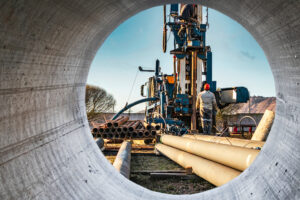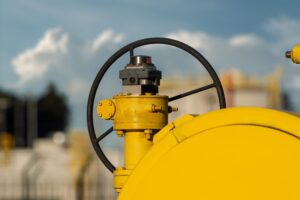When it comes to oil well perforation today, drilling engineers have come a long way in advancing technology. With the passing of each decade, they discover more innovative ways to run stringed casing down the wellbore to connect it to the reservoir. Once they fire the perforating guns to punch holes in the casing, that marks the final stage of well completion. However, since most perforating gun designs come with high energy charges, they require special safety practices to minimize hazards during operations. Therefore, it is always crucial to have perforating gun protection present, along with other protective applications for all drilling equipment.
Standard Practices for Perforating Gun Safety
It is always vital to ensure safety during perforating operations on an oilfield. It helps save lives, the wellbore, time, and investments. This is why technicians must abide by all 13 guidelines listed by the International Association of Drilling Contractor (IADC). However, below, we’ve listed the first five safety practices:
Electrical Detonators
-
- Perforating operations that utilize electrical detonators should not operate during static-generating or electrical dust storms. Operators must also suspend any type of perforating gun loading task during dust storms as well.
- While a mobile radio or telephone transmission set is operating within 150 feet of a well and the perforation truck, no electrical detonators should perform. Every worker must submit their cell phones and mobile devices to appropriate staff. Technicians must turn off all phones before rigging up the perforating gun. Once it is safe to turn them back on, the lead operator will notify workers of clearance.
Perforating Gun Loading and Unloading
-
- When operators are recovering the guns from the well, they should always treat the guns as live. Using cell phones and/or radios must only be re-established once the head operator confirms that the gun is completely disarmed.
- Smoking is prohibited except for designated break areas that are hundreds of feet away from the detonation site. Head operators and/or contractors will establish these areas. All workers and staff technicians must leave all smoking materials and associated paraphernalia, like lighters and matches, etc. in cars, designated smoking areas, or crew change houses. This will promote vital safety and prevent anyone from unknowingly “lighting up” on or near perforating operations.
- Operators must load and unload perforating guns as far away as possible from electrical generation plants and transmission systems. The head operator will measure for stray voltages. Therefore, if stray voltages exist, the operator may find it necessary to shut down the rig light plant and/or generator. And as needed, explosion-proof flashlights must be used instead of traditional ones.
For more information on the remaining guidelines visit IADC and the Recommended Practices for Oilfield Explosives Safety from API
Consider Perforating Gun Protection for Operation Safety
Perhaps one of the most crucial safety practices for wellbore perforation is to ensure your equipment and guns remain intact with perforating gun protection. Each operation site may differ to some degree, but pipe and thread protection should never wane.
Although perforating operations are necessary, it’s also a hazardous process. Therefore, only trained and experienced operators should perform these kinds of tasks. And having perforating gun protection and other thread protective tools will only help enhance well-site safety practices during operations.




